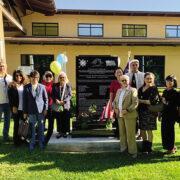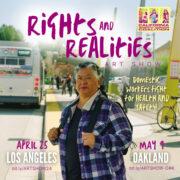NOONG isang linggo ay aking tinalakay ang I-601A Provisional Unlawful Presence Waiver. Ito ay iba sa I-601 Waiver of Grounds of Inadmissibility na aking tatalakayin ngayon. Ang I-601A Waiver ay ginagamit para humingi ng provisional waiver para lamang sa ground of inadmissibility na unlawful presence sa U.S. Ang I-601 Waiver naman ay ginagamit para sa mas malawak na grounds of inadmissibility kagaya ng: (1) health-related grounds; (2) ilang criminal grounds; (3) immigration fraud at pagsisinungaling; (4) immigrant membership sa totalitarian party; (5) alien smuggler; (6) isang taong may parusang civil penalty; at (7) ang 3-year o 10-year bar rule dahil sa dating unlawful presence sa U.S.
Ang I-601A Waiver ay kailangang i-file sa USCIS ng isang dayuhang nasa loob ng US. Kapag naaprubahan na ng USCIS ang I-601A provisional unlawful presence waiver, ang dayuhan ay kinakailangang lumabas ng U.S. upang ipagpatuloy ang pagproseso ng kanyang immigrant visa sa isang US Embassy o U.S. Consulate. Samantala, ang I-601 Waiver ay kailangang i-file ng dayuhan na: (1) nasa labas ng U.S.; (2) ang dayuhan ay nakapagpa-interview na sa U.S. consular officer para sa immigrant visa interview o nonimmigrant K or V visa; (3) ang U.S. consular officer ay nagkaroon ng determinasyon na ang dayuhan ay ineligible sa visa dahil siya ay inadmissible sa U.S.; at (4) sinabihan ng U.S. consular officer ang dayuhan na siya ay eligible para sa waiver ng kanyang ground of inadmissibility. Kung ang dayuhan ay na-deport na sa U.S., kailangan din siyang mag-file ng I-212 Application for Permission to Reapply for Admission to the U.S. After Deportation or Removal kasama ng I-601 Waiver of Grounds of Inadmissibility.
Kagaya ng I-601A Waiver, ang dayuhan sa I-601 Waiver Application ay kailangang magpakita na ang hindi pagbigay sa kanya ng visa ay magdudulot ng extreme hardship kanyang “qualifying relative” – asawang U.S. citizen (USC)/lawful permanent resident (LPR) spouse o magulang na USC/LPR. Ang determinasyon ng extreme hardship ay sang-ayon sa ebidensya sa bawat kaso at para maging “extreme” ito ay dapat higit sa pangkaraniwan at inaasahan. Sa isang kasong napagdesisyonan ng Administrative Appeals Office (AAO), ang alien ay inadmissible dahil sa fraud at misrepresentation sa kanyang visa application. Ang dayuhan ay nag-apply ng I-601 Waiver dahil ang kanyang asawa ay makakaranas ng extreme hardship katulad ng mabigat na emotional at financial hardship kung hindi siya mabibigyan ng visa. Sinabi ng asawang USC na ang dayuhan ang sumusuporta sa kanilang pamilya sa pamamagitan ng 2 full-time jobs dahil siya ay nawalan ng trabaho bilang Registered Nurse. Sinabi rin ng asawang USC na siya ay naging biktima ng domestic violence sa kanyang dating asawa kayat siya ay may counselling para sa anxiety, depression at Post-Traumatic Stress Disorder (PTSD). Nagbigay ang asawang USC ng psychological assessment report na tuloy-tuloy pa siyang nakakaranas ng psychological difficulties dahil sa trauma at ang dayuhang asawa ay malaking bahagi ng kanyang tuluyang paggaling. Sumangayon ang AAO sa asawang USC na ito ay makakaranas ng extreme hardship kung hindi mabibigyan ng visa ang dayuhang asawa. Kaya naman ang I-601 Waiver ay inaprubahan ng AAO.
Last week I discussed I-601A Provisional Unlawful Presence Waiver. This is different from I-601 Waiver of Grounds of Inadmissibility, which I will discuss today. The I-601A Waiver is used to request a provisional waiver of the ground of inadmissibility for unlawful presence in the U.S.. The I-601 Waiver is used to obtain relief from the following grounds: (1) health-related grounds; (2) certain criminal grounds; (3) immigration fraud and misrepresentation; (4) immigrant membership in a totalitarian party; (5) alien smuggler; (6) being subject to a civil penalty; and (7) the 3-year or 10-year bar rule due to previous unlawful presence in the U.S..
The I-601A Waiver is filed by the alien who is present in the US. Upon approval of the I-601A Waiver, the alien is required to depart the US to process his immigrant visa at a US Embassy or US Consulate Abroad. On the other hand, the I-601 Waiver is filed by the alien: (1) who is abroad; (2) has appeared before a US consular officer for immigrant visa interview or nonimmigrant K or V visa interview; (3) the US consular officer has determined that the alien is ineligible for visa because he is inadmissible to the US; and (4) the US consular officer has informed the alien that he is eligible to seek a waiver of his ground of inadmissibility. If the alien has been ordered removed from the US, in addition to the I-601 Waiver of Inadmissibility, the alien must concurrently file an I-212 Application for Permission to Reapply for Admission to the US After Deportation or Removal.
Similar to the I-601A Waiver, the alien in the I-601 Waiver Application must demonstrate that refusal of admission would result in extreme hardship to a “qualifying relative” – a US citizen (USC) or lawful permanent resident (LPR) spouse or USC/LPR parent of the alien. A determination of whether denial of admission will result in extreme hardship depends on the facts and circumstances of each case. To be “extreme”, the hardship must exceed that which is usual or expected. In a case decided by the Administrative Appeals Office (AAO), the alien was inadmissible due to fraud or misrepresentation in his visa application. The alien applied for I-601 Waiver on the basis that his USC wife will experience extreme hardship as a result of his continued inadmissibility. The alien asserted that his spouse will suffer extreme emotional and financial hardships upon separation. The wife explains that the alien has been supporting the family by working 2 full-time jobs because she lost her job as a Registered Nurse. The wife also details how she was a victim of domestic violence from her previous relationship and has sought counselling for anxiety, depression, and possible Post-Traumatic Stress Disorder (PTSD). The wife submitted a psychological assessment report that she continues to experience psychological difficulties from her trauma and that her alien spouse is an integral part of her healing process. The AAO found that the USC spouse will experience extreme hardship without the Applicant’s support and thus the I-601 Waiver was approved.
* * *
ATTY. RHEA SAMSON is a Partner at LINDAIN & SAMSON LAW FIRM. Atty. Lindain and Atty. Samson are both licensed to practice law in California and in the Philippines. Both Attorneys were also professors. LINDAIN & SAMSON LAW FIRM aims to provide excellent and efficient legal representation to clients, and support clients in achieving their goals and dreams. As professors, Atty. Lindain and Atty. Samson wish to educate the younger generation, as it is through education and continuous study that one can achieve success and serve others.
Please visit our office: LINDAIN & SAMSON LAW FIRM
3580 Wilshire Boulevard, Suite 1710, Los Angeles, CA 90010
Call or text us: (213) 381.5710
Email us: [email protected].




